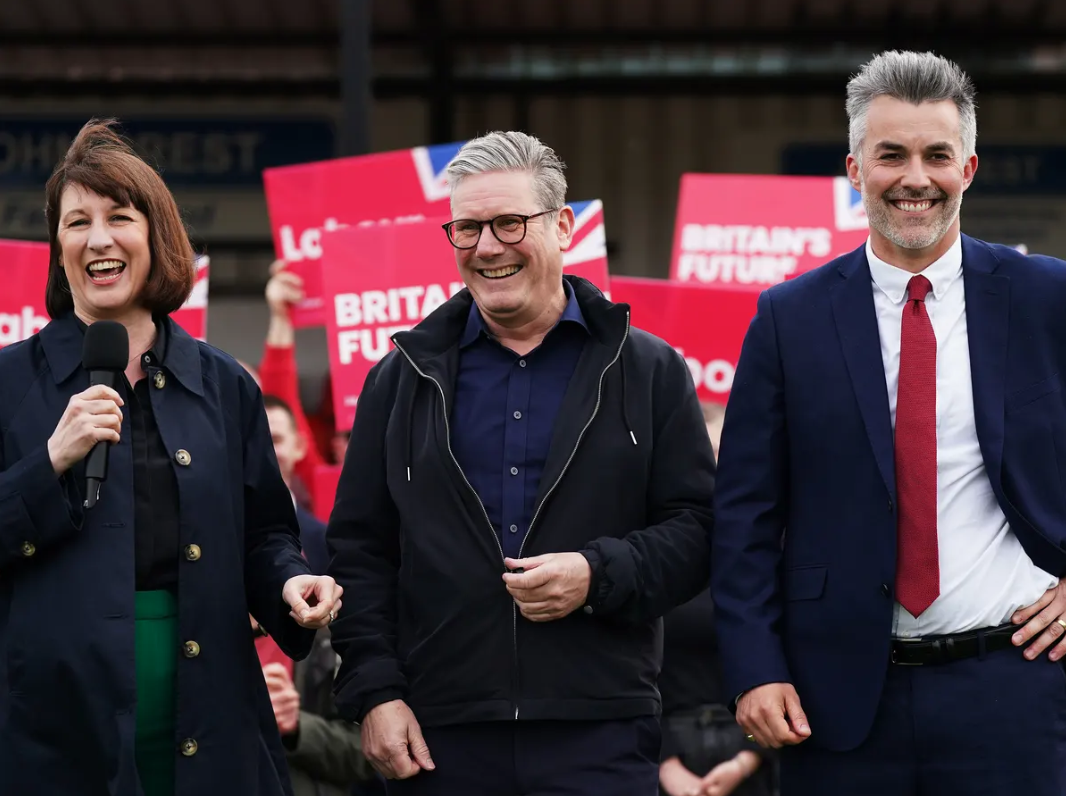When Prime Minister Rishi Sunak called a surprise general election on May 22, his thoughts may not have been on securing the majority of the vote on July 4. Instead, he was probably focused on learning the lessons from his Conservative Party’s heavy defeat in the May 2 local elections and minimizing his Party’s expected losses.
Even this modest target is likely to be an enormous undertaking. The Financial Times’ poll tracker currently puts Labour, the British center-left opposition party, 21 points ahead of the Conservatives (Tories).
Labour have held a significant lead in every region of England and Wales since the start of 2023, and since the start of 2024 now also lead in Scotland, despite the Scottish Nationalist Party having won a majority of the seats in Scotland in the last three General Elections.
“Labour’s 21-point poll lead over the Conservatives when the election was called on 22 May is the largest of any opposition party since 1997,” the poll tracker said. No ruling party has recovered from such a large polling deficit so close to an election.
Sunak is hopeful that a recent fall in inflation in the midst of the ongoing cost of living crisis will be enough to close the polling gap.
“Only a Conservative government led by me will not put our hard-earned economic stability at risk,” he said in his address to the British people on May 22.
He will be looking to maximize his Party’s support among its traditional voter base in the south, south-east, and East Anglia, where many of what have been regarded as safe Conservative seats lie. Nevertheless, even that prospect seems uncertain. “There is no such thing as a safe Tory seat anymore,” former Conservative Chancellor Kwasi Kwarteng said.
Local elections
Sunak has been under intense pressure since the Conservatives lost control of a record number of councils in local elections on May 2, which sent an ominous message about the party’s popularity ahead of the general election that had to be called before January 2025.
On May 2, elections were held in 107 English councils, with over 2,500 seats up for grabs. These included metropolitan boroughs like Manchester City Council and authorities such as Bristol and Dorset. Both types of councils are responsible for a wide range of services, including education and social care.
While only just over a third of all councils in England voted, because not all councils vote at the same time, these nationwide elections are seen as a good gauge of public opinion.
The opposition Labour Party, however, made significant gains across the country, gaining 186 councilors to add to their final total of 1,158. The centrist Liberal Democrat Party also managed to place second overall ahead of the Conservatives, a significant achievement for what has historically been the third-biggest party behind both Labour and the Conservatives.
Labour made gains in the “red wall,” areas of the Midlands and the North of England, which are traditionally Labour-voting, but where the Conservatives under Boris Johnson scored historic wins in 2019. Redditch, a town between Birmingham and Stratford, saw Labour win the council with 77.8% of the vote, up from just 31.3% in 2021.

They also scored significant wins in the southern Conservative heartlands, taking seats such as Rushmoor, on the outskirts of London, which will likely have set alarm bells ringing in Tory headquarters.
Despite the success for Labour, it is notable that their support among Muslim communities was notably weaker. This is likely due to the party’s vague stance on the war in Gaza. In 58 local council wards where more than one in five residents identify as Muslim, Labour’s share of the vote was 21% down from 2021.
It was a very bad night for the Conservatives, who lost 474 councilors and 10 councils.
The results represented “one of the worst, if not the worst” performances by the Conservatives, polling expert Prof. John Curtice of Strathclyde University said.
Mayoral Elections
On the same day as the local elections, Mayoral Elections were also held around England, most notably in London, where the incumbent Mayor Sadiq Khan of the Labour Party won a resounding third term.
The Conservatives, through their Mayoral candidate, Susan Hall, had unsuccessfully tried to target Khan for waging what they described as a “war on motorists” over his Ultra-Low Emissions Zone (ULEZ). Khan won the election, though with a smaller majority than Labour is used to in a city with an overwhelmingly left-leaning voting base.
Labour ended the night with overall control of 10 of 11 English mayoralities. The Conservatives managed to hold onto just one: Tees Valley, in the Northeast, which served as an important win for Sunak, despite it being by a 20% smaller margin than in 2021.
It would be a brave person who bets on a Conservative victory on July 4: the leading British gambling company Ladbrokes currently offers odds of 25-1 on the Conservatives retaining an overall majority in the House of Commons once all the votes have been counted.
Lewis Baston, political analyst with The Guardian, sums up the current reality for the Conservatives going into the General Election: “It would take a turnaround in public opinion that is absolutely unprecedented in British history for Sunak’s Conservatives to still be in government on July 6.”
by Oliver Dashwood



































































